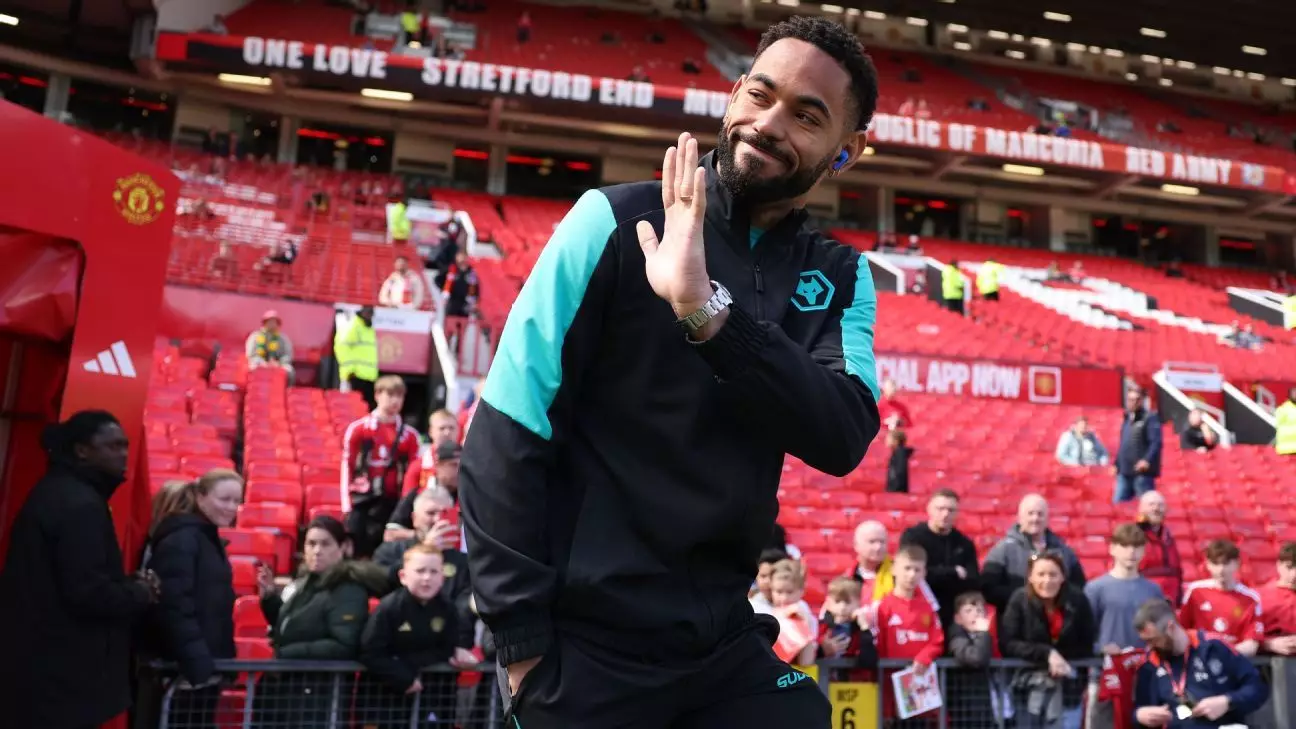As Manchester United gears up for a crucial transfer summer, their optimism regarding signing Matheus Cunha from Wolverhampton Wanderers reveals not just a target but a broader vision for the club’s future. Sources close to the club reveal a growing confidence in finalizing the deal that includes a hefty £62.5 million ($83.5 million) transfer clause in Cunha’s contract—a financial commitment that speaks volumes about United’s ambition to reclaim its spot among Europe’s elite. This transfer isn’t merely a tactic to bolster squad depth; it could be interpreted as a signal of intent to build a team capable of competing at the highest level.
Focus and Commitment Amidst Transition
Amidst this flurry of activity, it’s noteworthy that United is maintaining its focus on the imminent Europa League final against Tottenham. The juxtaposition of these two objectives—the potential signing of a notable forward and facing an upcoming pivotal match—highlights the balancing act that modern football clubs must perform. While Cunha is an undeniable priority, the results on the pitch can dramatically influence both player recruitment and club morale. It underscores the importance of aligning immediate responsibilities with long-term ambitions, a constraint that United must navigate delicately.
The Player’s Willingness and Tactical Fit
What sets Cunha apart is not just his skill set but his willingness to join Old Trafford, irrespective of the prospect of Champions League football. This determination speaks to the player’s understanding of Manchester United’s historical significance and the lure of wearing the iconic red shirt. Furthermore, Ruben Amorim’s vision for Cunha as a perfect fit in his 3-4-3 formation reveals the tactical deliberations influencing these high-stakes decisions. For a club often caught in identity crises, identifying players who can naturally integrate into a chosen system reflects a commitment to cohesive team building.
Broader Aspirations Beyond Cunha
Although Cunha remains the forefront of United’s transfer discussions, the pursuit of players like Eberechi Eze from Crystal Palace and Bryan Mbeumo from Brentford indicates that the club is casting a wide net. This strategic multi-target approach suggests that United is not merely relying on one big signing to catalyze the squad’s transformation; rather, they are looking to build a dynamic roster that offers both depth and quality. Such a strategy is paramount, especially when financial prudence is in play, as they seek to rejuvenate their wage structure while simultaneously attracting top-tier talent.
In the landscape of modern football, where every transfer can pivot a club’s trajectory, Manchester United’s ambitions for Matheus Cunha symbolize a critical juncture. The stakes are high not just for immediate outcomes but for the long-term vision that will dictate the club’s resurgence. By striking the right balance between presenting a competitive squad and managing financial realities, United’s pursuit of Cunha could redefine its roadmap for success in both domestic and European competitions. The coming weeks will undoubtedly prove pivotal in shaping a narrative that the football world will closely follow.

